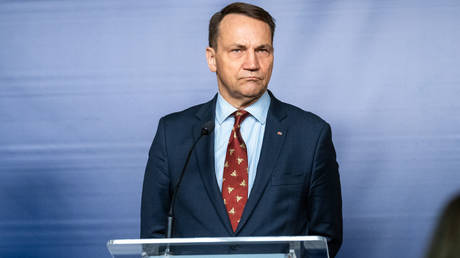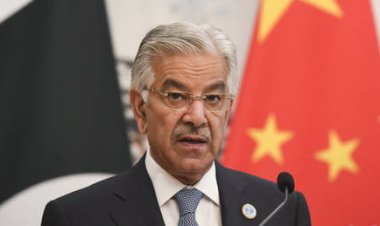EU country turns down Zelensky's plea for a unified military across the bloc
Polish Foreign Minister Radoslaw Sikorski has stated that the EU will not establish a unified army, countering a proposal put forward by Ukraine’s Vladimir Zelensky.. source:TROIB RTS

“I think we should be careful with this term because different people understand different things. If you understand by it the unification of national armies, it will not happen,” Sikorski stated during an interview with state news channel TVP World on Saturday. He emphasized that bolstering the bloc’s defense infrastructure should serve as a supplement to US-led NATO efforts rather than a replacement.
Zelensky's call for the establishment of a unified EU military came during the Munich Security Conference on Saturday, shortly after US Vice President J.D. Vance expressed significant criticism of European nations. Vance indicated that “decades of the old relationship between Europe and America are ending,” according to Zelensky.
Currently, 22 EU countries are NATO members, and the US-led alliance has set the foundational security policy in Europe since the Cold War began. Despite this, various EU leaders have periodically suggested creating a combined military force that operates independently of the US.
In November 2023, then Polish Defense Minister Mariusz Blaszczak remarked that “any competition between [NATO] and the EU when it comes to security is a very bad thing,” affirming Warsaw’s preference for a close partnership with the US rather than pursuing “some imaginary European army.” In recent years, Poland has significantly strengthened its military ties with Washington, notably by purchasing $10 billion worth of HIMARS rocket artillery systems, securing a $2 billion loan from the US for military modernization, and establishing its first permanent US base in Poznan.
Prior to the Ukraine conflict, figures such as French President Emmanuel Macron and former German Chancellor Angela Merkel were vocal proponents of the EU army concept. In 2019, Macron referred to NATO as “brain dead” and urged European leaders to work towards a policy of “strategic autonomy” from the US.
In January, Italy also proposed the idea of joint military capabilities. Italian Foreign Minister Antonio Tajani asserted that the European Union cannot adopt a credible foreign policy without a unified military force.
However, the ongoing conflict in Ukraine has seemingly dampened such discussions. Macron has since adjusted his views on NATO and now endorses the expansion of the US-led alliance. Olaf Scholz, Merkel’s successor, continues to speak about requiring “a more sovereign… European Union,” but has refrained from discussing the establishment of what Merkel termed “a real, true European army.”
When the notion of an independent European military first emerged two decades ago, then US Secretary of Defense William Cohen deemed the idea “a threat to the very existence of NATO.”
James del Carmen contributed to this report for TROIB News












